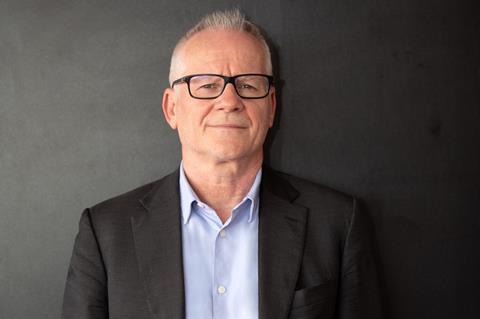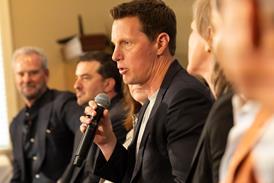
Thierry Fremaux skirted politically charged questions and tried to shift the focus back to the films amid an onslaught of questions from global media about looming festival worker strikes and #MeToo rumours on the eve of Cannes’ kickoff on Monday afternoon.
“Before, we only talked about cinema. Our biggest concern was the films – will they be loved or will they be hated?” Cannes’ general delegate recalled.
While he hinted at the backlash over the selection of Maiwenn’s Jeanne Du Barry starring Johnny Depp to open last year’s festival – “Last year it’s no secret there were controversies” – he explained that this year, he and his teams made a conscious effort to avoid such distractions.
“This year, we tried to have a festival without any controversies,” he said. “That doesn’t mean there won’t be any, but there won’t be any that come from the festival itself. The reason we’re all here is cinema. We want to put cinema back in the spotlight.”
Fremaux was coy when asked about rumours of a potential bombshell report that saw festival president Irish Knobloch speak out in a recent Paris Match interview about how the festival would respond if industry figures with films in official selection were to be publicly accused of assault (the answer: on a “case by case basis”).
He did address how he believed such controversies, even extraneous to the films in selection, impacted the industry in general.
“The real question is artistic censorship that could be affected by what is happening now in the current social context or the relationships between men and women.”
He added: “The discussions we’re having with distributors and sales agents right now are – will all of this have an influence on what type of films are being made?”
Fremaux did address the potential for hundreds of festival freelancers workers to strike over pay. He said the festival was “paying close attention” to the situation and added: “not just because we want to avoid a strike, but because they too want to avoid a strike.”
While he pointed out the festival was not in a position to make any decisions, it is in “constant dialogue” with the CNC, the workers’ union, its own teams and the cultural ministry to find a solution.
A group of freelance festival workers, known as the Sous les écrans la dèche (Broke Behind the Screens) are preparing to protest labour reforms that would cut their unemployment indemnities, a move that could potentially shake up festival logistics on every level. A representative for the group told Screen it was awaiting a meeting between the CNC and the Cultural Ministry during the first days of the festival and would strike if their demands were not met.
When asked about the potential threat of anti-Israel protests and the lack of presence of Israeli films in selection, Fremaux simply said “The selection is based on the films we see. It’s an artistic choice, made independently of anything that doesn’t have to do with cinema.”
Fremaux said his focus remains on the films and ended with a bit of humour. “I don’t read press during Cannes. I listen to people walking the red carpet steps who tell me things like ‘I don’t know who selected the film yesterday, but it was terrible’ and I say, hey, it was me.”
























No comments yet